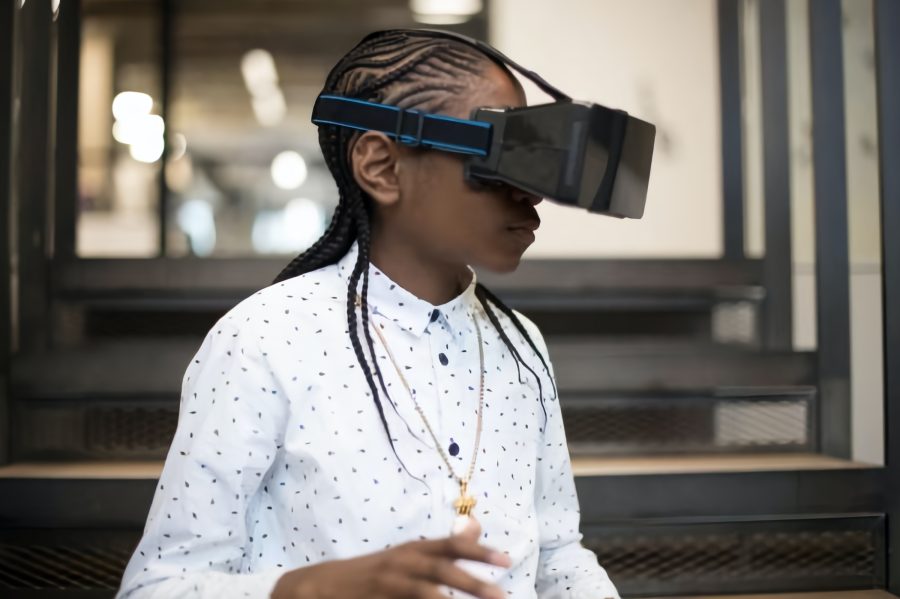Virtual and augmented reality (which provides the ability for individuals to interact with each other) is the term frequently appearing in the context of e-commerce. Wondering how this technology will change the way people shop online? Apparently, this is not the only area where this novelty is becoming increasingly influential – as you may have heard, for example, about the metaverse in the HR industry.
The metaverse in the HR industry – table of contents:
Although at this point the technology is still in the early stages of development and the exact direction it will take is unknown, ideas are already emerging about how it will transform the processes and activities carried out so far. Today, we’ll look into the metaverse in the HR industry and focus on the most significant changes that may occur in human resource management due to the development of virtual immersive worlds.
What do you need to know about metaverse in the HR industry?
The metaverse in HR undoubtedly has the potential to increase employee engagement, productivity and satisfaction by providing a more engaging, interactive and inclusive environment for daily operations. Though a few possible directions for incorporating this technology have been outlined above, we have to recognize that it is still in its cradle, and its impact on changing the processes of HR management will depend on many other unpredictable variables.
New regulations, public acceptance (degree of willingness to exploit the proposed solutions) or the pace of development are just some of the factors that will play a vital role in the future of HR. However, it is undoubtedly a buzzing domain that will undergo unprecedented transformations before our very own eyes. Many will be looking for areas of operation to exploit the metaverse and push the envelope moving the HR industry to the next level.
Moving some processes to the metaverse
Thanks to this technology, companies operating in various industries will transfer some of the processes they have carried out so far to the virtual world. What does this mean in practice? For example, they will participate in job fairs or hold recruitment meetings in digital reality, which will facilitate reaching a greater number of job seekers as well as the assessment of their skills and abilities more realistically.
Candidates, in turn, will have the opportunity to interact directly with company representatives (especially to ask questions) without leaving their homes. Metaverse in the HR industry can also be used to create immersive and interactive onboarding and training experiences for new employees (in simulations of situations that might occur on the job).
An improved version of remote working
The metaverse in the HR industry can also make the already widespread remote work more engaging, collaborative and easier for employees to stay in touch with each other. With this technology, individual team members can use virtual offices and meeting spaces to interact with each other, their managers or executives – no matter what part of the country or world they are currently in.
The benefits of an improved version of remote work (relative to meetings on Zoom, Google or Teams) can benefit both parties – leaders in the form of facilitated communication and coordination of daily activities, and employees through better team relationships. As a result, you can expect to see an increase in work engagement and thus retention rates.
Leveling the playing field
Virtual environments can also provide new opportunities for employees with diverse characteristics, skills and limitations to participate in the workforce actively. This is because the metaverse in HR, for example, allows employees from different parts of the world to work together in one digital world, making it possible for companies in different industries to open up to people with different cultures, languages and nationalities, providing them with excellent work experiences (better than the current remote work).
At the same time, this reality makes it possible or more accessible for people with disabilities to get to work (by adapting the environment with technological solutions), which can contribute to better management of diversity and inclusion in the organization while affecting society as a whole.
More support in the pursuit of work-life balance
The Metaverse in the HR industry can also facilitate physical and mental health care to a greater extent than is currently the case. This is because, in a virtual environment, employees can engage in various health programs (yoga classes, meditation sessions, meetings with specialists, etc.) while connecting with others in the company.
By providing employees access to wellness programs and digital reality communities, companies can reduce stress, improve fitness or increase a sense of belonging. As a result, employee morale will improve while efficiency and productivity levels will increase (by taking care of both physical and mental health simultaneously).

Current automation capabilities in the HR industry
Before the HR metaverse goes into everyday use, it is also worth keeping an eye on other capabilities currently developed to automate the work of professionals. One of them is Firmbee, a project and team management tool that comes expanded with an ATS system that effectively speeds up recruitment processes.
HR specialists can now find relief from performing tedious duties such as resume selection. Thanks to the function of automatic suggestion of candidates, the recruiter determines what characteristics (personalities, experience, knowledge) the future employee must have and the system suggests applicants who meet these requirements.
If you like our content, join our busy bees community on Facebook, Twitter, LinkedIn, Instagram, YouTube, Pinterest, TikTok.
Author: Nicole Mankin
HR manager with an excellent ability to build a positive atmosphere and create a valuable environment for employees. She loves to see the potential of talented people and mobilize them to develop.


















